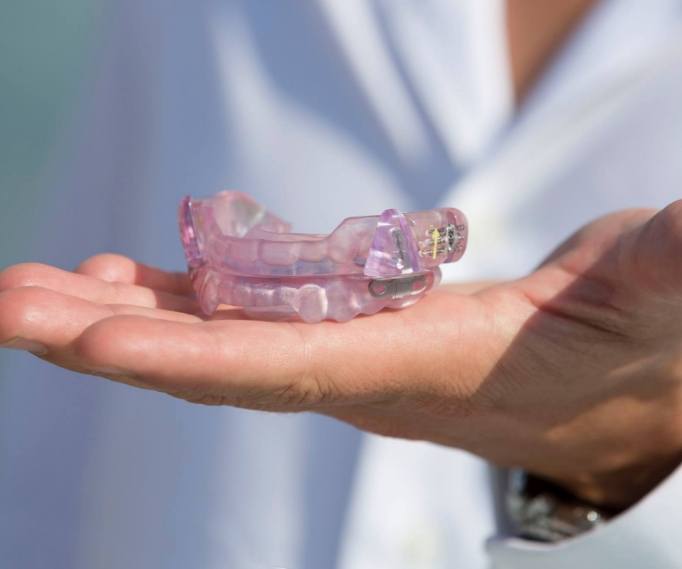TMJ Treatment - Bayville
Ease Your Jaw Pain & Improve Your Life

TMJ disorder is a common condition that impacts the function and comfort of the two jaw joints that help you move your mouth from side to side and chew your food. Their dysfunction can lead to symptoms and secondary conditions that have a drastic effect on your day-to-day life, like bruxism and lockjaw. Our team at Bayville Dental Arts offers several solutions to help you reclaim your life and oral function with TMJ treatment in Bayville, including occlusal adjustments and customized occlusal splints. Call us today if you’re experiencing signs of TMJ disorder to receive the much-needed, effective care you deserve!
Why Choose Bayville Dental Arts for TMJ Treatment?
- Multiple Customized TMJ Treatment Options
- We Offer Multiple Flexible Payment Choices
- Compassionate & Friendly Dental Team

Symptoms of TMJ Disorder

TMJ disorder causes a wide variety of symptoms, which often results in the condition remaining undiagnosed or even misdiagnosed. Fortunately, our team has ample experience helping patients pinpoint and address the source of their symptoms. If you notice any of the following signs, give our office a call for a thorough examination:
- Lockjaw
- Tenderness and pain in the jaw
- Aching around your ear
- Facial pain
- Difficulty or pain while chewing
- Bruxism, or teeth grinding
TMJ Diagnosis & Treatment

The first step to take if you notice any of the signs of TMJ disorder is to call your dentist in Bayville for an examination. Our team will feel your jaw joints and conduct a series of tests to make sure they’re functioning as they should be. If necessary, we can also capture diagnostic images to help build a complete picture of the issue. Based on our findings, we may recommend one of our two custom-tailored TMJ treatments listed below.
Equilibration / Occlusal Adjustments

In some cases, TMJ disorder can be caused by the teeth coming together unevenly due to being misshaped or having an ill-fitted restoration. This can lead to an imbalance in the force that each jaw joint has to bear, causing dysfunction. If this is the case, we can balance the bite and force that the jaw joints sustain by simply adjusting the restoration or teeth, also called equilibration.
Occlusal Splints

Another way we can ease the strain the jaw joints receive is by shifting the jaw into its ideal position as you sleep using a customized occlusal splint. With time, the splint will help reduce the severity of your symptoms, eventually, ideally, leading to improved oral function.

